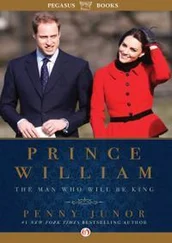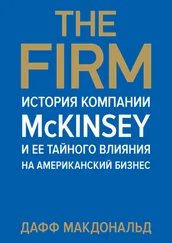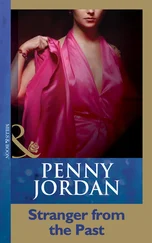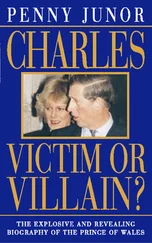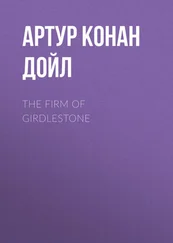A few weeks earlier he had been at Oxford doing something similar, and while the Great and the Good turned up in force to see him, there was scarcely a student to be seen. Small wonder, perhaps, that in an interview on American television, he mournfully said of the British, ‘I only hope that when I am dead and gone, they might appreciate me a little bit more.’ What is it they say about prophets in their own land?
Like all official foreign visits, this was undertaken at the behest of the Government and in diplomatic terms, the highlight of trip was a dinner at the White House as guests of President George W Bush. Bush is no great fan of late nights – this was only the sixth time he had hosted a formal dinner of this kind during his tenure and the first time ever that official visitors have been entertained privately to a family lunch as well. It spoke volumes. And if the Duchess of Cornwall was finding it hard to believe that she, who had once had to hide beneath blankets in the back of cars to avoid being seen with the Prince of Wales, was standing on the White House lawn posing for photographs, not only with the Prince but alongside the President and First Lady of the United States of America, so too were the world’s media. More than two hundred journalists were there that day, more, the President remarked, than he had ever seen on the White House lawn during his entire presidency.
There will be more official foreign tours for Charles and Camilla in 2006 but the notion, occasionally floated in the press, that there is a plan afoot for the Prince of Wales to take over duties from the Queen so that she can quietly bow out of the more arduous one are premature. She is still in the greatest of health, her diary is full, she enjoys her work and shows no signs of wanting to slow down. Indeed her birthday year is full of celebratory engagements including an eightieth Birthday Reception and Lunch at Buckingham Palace a couple of days earlier for people from all over the UK who share the Queen’s date of birth, 21 April. And in August, at the end of her summer programme the Queen is chartering a ship called The Hebridean Princess (paid for out of her private money) for a week’s cruise around the Western Isles, with members of the family coming and going. It will bring back nostalgic memories, no doubt, of HMS Britannia , the Royal Yacht, sadly decommissioned in 1997 after forty-four years, which she and the rest of the family so treasured.
One day, of course, the Queen will slow down, and preparations are already being made at Clarence House to ensure that, when the time comes, the Prince’s core charities will be able to stand on their own two feet and not depend, as they have in the past, upon such hands-on involvement from the Prince. There is no suggestion that he will duck out of them entirely but his role will inevitably change. In May 2006, the oldest of those charities, The Prince’s Trust, which grew from a few scribbled ideas on the back of an envelope, is thirty years old, and will be marked by a concert at the Tower of London and an interview with Charles, William and Harry conducted by the I’m A Celebrity Get Me Out Of Here TV presenters Ant and Dec.
Anyone who hoped the Prince of Wales might become easier to deal with once Camilla was finally, officially and legitimately by his side and the divisions and the controversy over, will be largely disappointed. He is happier without question and life is more fun with someone to share it, but the Prince is still capable of being a demanding and difficult man – and as the American interview intimated, still given to feeling sorry for himself. When Kevin Knott, who was appointed to the new post of Master of the Prince of Wales’s Household in September 2005, and had been in the Prince’s employ for nearly twenty years, handed in his notice several months later to become bursar of an Oxford college, the Prince, to use one observer’s phrase, ‘threw ALL his toys out of the pram and behaved like the petulant child he is.’ Sir Malcolm Ross, Comptroller of the Queen’s Household, was recruited in his place and took up the post in January 2006 – thus strengthening the ties between the two palaces still further.
But what worries many of the Prince’s friends and employees is the continued and undiminished presence of Michael Fawcett in Charles and Camilla’s life. Visitors to Sandringham say he is ‘a shadow … and rather a nasty one, on the listen, as well as in their pockets – and they in his.’ For reasons no one can quite put their finger on, he is not only unpopular but positively feared by many of those who work with him and his arrogance takes the breath away. Tom Parker Bowles, who married Sara Buys, the fashion editor of Harpers & Queen in September 2005, refused to let Fawcett have anything to do with his wedding arrangements. Fawcett is said to have been miffed but since the bride’s father was footing the bill, the arrangements were easily done. Laura, who will marry Harry Lopes, the former Calvin Klein model, in 2006, shares her brother’s sentiments but may find she has no choice in the matter. If Camilla is paying, the chances are Michael Fawcett will be in charge.
Why she and the Prince carry on allowing themselves to be tainted by a man so universally disliked remains a mystery. Although, as one friend says, ‘His would be the hottest memoir of the lot were he ever to spill the beans so Charles is desperate to keep him on side.’ It’s hard to think of a better explanation.
Prince Charles has had more than his fair share of difficulties over the years; he has had a rotten marriage, a bad press and justifiably he feels under-appreciated. Sadly he can’t conceal it. If only he could stop whinging, stop blaming others for his troubles and start letting people see the enthusiastic, excitable, unstoppable and compassionate Prince that those who know him love and admire, MPs and others might then stop questioning how much he spends and start marvelling at how much he raises for charity, how hard he works and what hope he has brought to so many hopeless lives.
‘You can’t say to the Prince of Wales, “Why aren’t you more like Queen Elizabeth?” because he’s not,’ says someone who knows the family well. He believes that Charles’s self-indulgence gets in the way of getting the job done properly. And that, in turn, gives him very little leeway in terms of public tolerance. ‘If you’re failing in convincing the world you’re doing the job properly, then all your personal failings weigh in against you as well, but if you are clearly doing a terrific job, you’ve got flair and people love working for you, they see that the monarchy has a point. You’ve got much more capital with the public, and you can afford to the inevitable drawing on capital. Charles has been running an overdraft.’
I would like to think the Prince of Wales, with Camilla to cherish and support him, could turn public opinion around, and there is every indication that his stock is deservedly rising, but in the long term it is the institution more than the individuals that matters. It is a continuity act – things go on through thick and thin. Throughout history there have been good monarchs and bad, strong monarchs and weak ones. Charles will be judged by history, when all the facts (those that were not shredded after his wife’s death) are revealed and his son is on the throne. William is the great white hope for the future.
William graduated from St Andrew’s in June 2005 with a 2:1 in Geography and flew almost immediately to New Zealand to support and train with the English and Irish Lions rugby team (at the invitation of coach Sir Clive Woodwood) in their match against the New Zealand All Blacks at the close of the test series. While there he carried out his first solo engagements, representing the Queen in ceremonies in Wellington and Auckland to commemorate the end of the Second World War.
Читать дальше
Конец ознакомительного отрывка
Купить книгу

